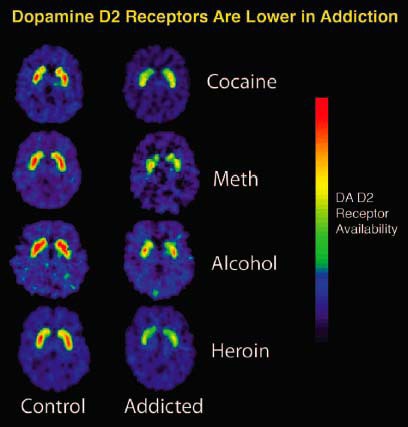After spending countless nights pulling all-nighters during my time at UC Berkeley, I ended my collegiate career needing 5 cups of coffee a day to stay awake. That’s right. Five. I ended up needing two cups of coffee every morning to start my day, and more to get through it. Caffeine addictions are not as detrimental as other addictions; there are some cases in which people will seek out drugs, alcohol, or other substances no matter the cost- even if it means losing family, friends, and work.
The National Institute of Health set out to figure out why addiction can be so detrimental. They’ve shown that addiction is a long-lasting, complex brain disease, but current treatments can help people control their addictions. While these treatments can help control addictions, people who have successfully quit still run the risk of having their addiction return.
The basic biology is as follows: drugs and alcohol hijack the pleasure/reward circuits in your brain and hook the person into wanting more and more. An addiction can also send the emotional danger-sensing circuits into overdrive, making them feel anxious and stressed when not using the substance. By this point, people often abuse a substance to keep from feeling bad rather than for their pleasurable effects. Continual use of drugs can damage the prefrontal cortex – the part of the brain that makes decisions. This damage then decreases your recognition of the harmful effects of using addictive substances.
Image Source: Visuals Unlimited, Inc./Science VU
Dr. Nora Volkow, director of NIH’s National Institute on Drug Abuse, found that brain imaging studies of people addicted to drugs or alcohol show decreased activity in this frontal cortex. Even if people know that they run this risk by taking a drug, they can’t make the decision to stop.
This is backed by a study by Ko et al. where they also found that several regions of the brain, including the prefrontal cortex, activated via functional magnetic resonance images (fMRIs) in response to gaming cues in subjects with internet gaming addiction. This suggests that the mechanism of internet gaming addiction is similar to substance use disorder. The addiction group also had stronger activation over right prefrontal cortex and left parahippocampus than did the remission group, which suggests that treatment really can help.
The first step to stopping an addiction is always to prevent it from happening in the first place, but if it’s already occurred, there is always help. Recovery is possible.
Featured Image Source: Dopamine D2 Receptors in Addiction










